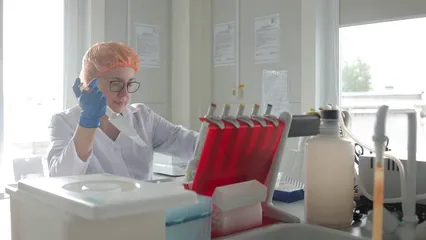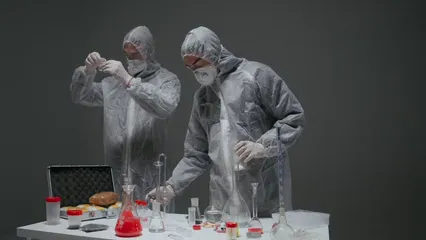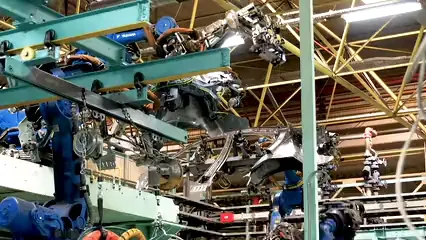Understanding SCS Sampling Systems
Definition and Overview
A Sample Conditioning System (SCS) is a vital component in the realm of industrial analysis. Its primary role is to prepare samples accurately for further examination. This preparation often includes adjusting temperature, pressure, and state—from liquid to gas, for instance. When it comes to reliable analytics, the SCS is your go-to system!
In numerous industries, including petrochemicals and environmental monitoring, the SCS plays a crucial part. It ensures that the samples reaching analyzers are representative and properly conditioned. Without this system, analytical results could be as reliable as a fortune cookie prediction!
To elevate your analytical game, consider investing in a Sample Conditioning System. This device is designed to optimize your sample preparation process, ensuring that you achieve the most accurate results every time. After all, nobody wants to deal with the aftermath of inaccurate readings!
Importance in Analytical Processes
The importance of SCS in analytical processes cannot be underestimated. Picture this: a high-stakes laboratory where every second counts. An SCS minimizes lag time, enhancing response rates and ensuring that analytical results mirror reality. Just as a chef fine-tunes ingredients for the perfect dish, an SCS fine-tunes samples for precise analysis.
Moreover, the SCS addresses challenges like pressure regulation and filtration. It can handle extreme temperatures and hazardous materials, making it an indispensable ally in various settings. Without a robust SCS, even the most advanced analyzers risk producing inaccurate results.
In short, the SCS serves as the backbone of reliable analysis, ensuring that every sample is prepared in a way that guarantees trustworthy outcomes. Remember, in the intricate dance of industrial analysis, the SCS leads the way!

Benefits of Using an SCS
Enhancing Analytical Accuracy
When you think of accuracy in analytical processes, imagine a master chef measuring spices. Just a pinch too much can ruin an exquisite dish. Similarly, Sample Conditioning Systems (SCS) ensure that samples are perfectly prepared, leading to accurate measurements. An SCS fine-tunes a sample’s temperature, pressure, and state. This meticulous preparation is crucial for reliable results. Without it, your data may resemble a game of telephone—what started as a clear message ends in confusion.
An SCS also helps in reducing lag time. It allows samples to reach analyzers without unnecessary delays. This swift action means that readings are taken closer to the actual process conditions, improving overall accuracy. With a well-implemented SCS, analytical errors drop dramatically. Imagine conducting tests with confidence, knowing your results are based on optimally conditioned samples.
If you’re looking for precise temperature readings to complement your SCS, check out this Digital Thermometer. It guarantees accurate measurements, allowing you to monitor your samples’ temperature with precision and ease!

Reducing Maintenance Costs
Let’s face it: maintenance can be a budget’s worst enemy, like a surprise expense that pops up at the most inconvenient time. Thankfully, an SCS can save you money in the long run. How? By ensuring that equipment experiences less wear and tear. A properly functioning SCS minimizes the number of maintenance interventions needed. This means fewer disruptions and lower costs for repairs and replacements.
Moreover, the reliability of an SCS enhances the lifespan of your analytical instruments. When your analyzers are safeguarded from extreme conditions and sample inconsistencies, they’re less likely to malfunction. This leads to fewer breakdowns and a longer operational life, which ultimately translates to cost savings for your organization.
For added peace of mind, consider a Pressure Regulator to ensure your systems operate within safe parameters. This simple addition can significantly reduce wear on your equipment and minimize costly repairs!

Improving Safety in Hazardous Environments
In industries dealing with hazardous materials, safety is paramount. An SCS acts as a protective barrier between dangerous samples and operators. These systems are designed to handle volatile substances, ensuring that they are contained and managed effectively. Think of an SCS as the superhero of your facility—always on guard, ready to tackle potential risks.
By implementing an SCS in hazardous environments, you create a safer workplace. It minimizes the risks associated with handling dangerous samples, thereby enhancing overall operational safety. Operators can focus on their tasks without the constant worry of exposure or accidents. When safety is prioritized, productivity can soar, and that’s a win-win for everyone involved.
Don’t forget to equip your team with a Personal Protective Equipment (PPE) Kit. This essential gear will keep your operators safe while they work with potentially hazardous materials!
In conclusion, the benefits of using an SCS are clear: enhanced accuracy, reduced maintenance costs, and improved safety in hazardous environments. Investing in an SCS isn’t just smart; it’s essential for any organization focused on achieving reliable analytical results while ensuring the well-being of its staff.

Applications of SCS Sampling Systems
Industrial Applications
SCS sampling systems are like Swiss Army knives for various industries, offering a range of applications tailored to specific needs. Let’s take a closer look at where these systems shine!
Natural Gas and Petrochemical Industries
In the natural gas and petrochemical sectors, precise measurements are vital. An SCS ensures that samples are accurately conditioned before analysis, allowing for reliable readings of critical parameters like BTU content, H2S levels, and more. For instance, during custody transfer operations, where the transfer of gas from one party to another occurs, an SCS guarantees that the sample represents the gas accurately. This is crucial for determining the fair market value, preventing disputes, and ensuring compliance with contractual obligations.

Environmental Monitoring
Environmental monitoring is another area where SCS systems play a significant role. Whether it’s measuring air quality, water quality, or emissions, the accuracy of these readings hinges on effective sample conditioning. An SCS can handle various environmental samples, ensuring they are representative and properly prepared for analysis. This is particularly important for Continuous Emission Monitoring Systems (CEMS), where real-time data is crucial for regulatory compliance.
For robust environmental analysis, don’t overlook the value of an Environmental Monitoring Kit. It will empower your team to gather accurate data effortlessly, ensuring compliance and safety!

Case Studies and Real-World Examples
Consider the case of a petrochemical plant facing regulatory scrutiny. They implemented an SCS to enhance their sampling process. The result? A marked improvement in compliance with environmental regulations. They achieved more accurate measurements and reduced the risk of penalties. Furthermore, the plant reported a decrease in maintenance costs due to the SCS’s reliability.
In another instance, an SCS was deployed in a water treatment facility. The system allowed for real-time monitoring of contaminants, leading to faster response times during potential contamination events. As a result, the facility improved its operational efficiency while ensuring public safety.
These examples illustrate the versatility and effectiveness of SCS sampling systems across various applications. By ensuring accurate sample conditioning, organizations can achieve reliable results, maintain compliance, and enhance overall operational efficiency.

Regulatory Standards and Best Practices
Overview of Relevant Codes and Standards
Understanding the regulatory landscape is crucial for implementing an effective SCS. Various codes and standards govern the operation of sample conditioning systems to ensure safety and reliability. Key regulations include ASTM Standards Book, which provide guidelines for sampling and analysis, and NACE Standards Guide that address materials compatibility in corrosive environments. Adhering to these standards not only promotes safety but also enhances the credibility of your analytical results.

Best Practices for Installation and Operation
To maximize the benefits of an SCS, following best practices during installation and operation is essential. First, ensure that the system is designed according to the specific requirements of the application. This includes factors like sample type, flow rates, and environmental conditions.
Regular maintenance checks are also vital. Establish a routine schedule for inspecting components such as filters, pumps, and regulators. Keeping these elements in top shape ensures optimal performance and prolongs the life of the system.
Training staff on the proper operation of the SCS is another key aspect. Knowledgeable operators can troubleshoot minor issues before they escalate, maintaining the integrity of the analytical process.
In summary, understanding the regulatory standards and implementing best practices for installation and operation are critical to the success of SCS sampling systems. These steps not only enhance safety and reliability but also ensure compliance with industry regulations.

Future Trends in SCS Technology
Innovations and Emerging Technologies
The world of SCS technology is evolving, and the future looks bright! Innovations are emerging that will enhance the performance and capabilities of sampling systems. One significant trend is the integration of advanced materials that improve durability and resistance to harsh conditions. This means longer-lasting systems and less downtime for maintenance.
Moreover, the trend towards modular designs is gaining traction. These systems allow for easy upgrades and expansions. This is particularly beneficial for facilities looking to adapt to changing regulatory requirements or process needs.
For those who love to stay ahead of the game, exploring a Smart Home Automation System could be a fun venture. While it’s not directly related to SCS, who wouldn’t want to control their home environment with just a tap on their phone?

The Role of Automation and Digital Integration
Automation is another exciting trend. With the rise of smart technology, SCS systems are becoming more automated, allowing for real-time monitoring and adjustments. Imagine a system that can detect sample inconsistencies and make corrective actions without human intervention. This level of automation not only boosts efficiency but also enhances accuracy.
Digital integration is also on the rise. Many modern SCS systems now feature connectivity options that allow for data sharing and analysis. This capability enables operators to monitor trends, troubleshoot issues, and optimize processes from anywhere, making it easier to maintain high standards of reliability and performance.
In conclusion, the future of SCS technology promises exciting advancements that will drive efficiency, accuracy, and safety in sample conditioning. By embracing these innovations, industries can stay ahead of the curve and ensure they meet the demands of an ever-evolving market.

FAQs
What is the primary function of an SCS?
The primary function of a Sample Conditioning System (SCS) is to prepare samples for analysis accurately. This system adjusts vital parameters such as temperature and pressure, ensuring that the samples sent to analyzers are representative of the process conditions. Whether it’s gas, liquid, or even hazardous materials, an SCS ensures reliable results by managing sample integrity.
How can an SCS improve the accuracy of analytical results?
An SCS enhances accuracy in several ways. First, it minimizes lag time, allowing samples to reach analyzers without unnecessary delays. By conditioning samples to match process conditions, it reduces discrepancies caused by environmental factors. Furthermore, an SCS employs filtration and pressure regulation, which is crucial for preventing contamination and ensuring that only the intended sample reaches the analyzer. This meticulous attention to detail leads to more dependable and precise analytical outcomes.
What industries benefit most from SCS systems?
SCS systems are invaluable across various industries. The natural gas and petrochemical sectors rely heavily on accurate sampling for custody transfer and compliance. Environmental monitoring also benefits significantly, as precise measurements are essential for regulatory adherence. Additionally, industries dealing with water quality, chemical processing, and emissions monitoring utilize SCS systems to ensure their samples are properly conditioned, safeguarding both results and public safety. Essentially, any sector that requires robust analytical precision can gain from implementing an SCS.
Please let us know what you think about our content by leaving a comment down below!
Thank you for reading till here 🙂
All images from Pexels




